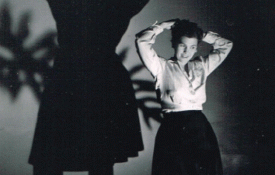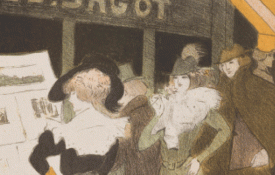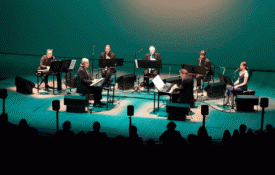Podcasts blend the nostalgic sound and feel of radio with today’s need for personalization of anything digital. This is why Chris Ryan, executive editor of sports and pop culture podcast The Ringer, calls podcasts “the next generation’s radio.” It’s like listening to good friends chat on topics catered to listener’s interests. CSQ spoke with Ryan about the rise of the podcast and how the format gives what people crave—the feeling of community. Ryan knows what he is talking about. The Ringer continues to excel, never skipping a beat on entertainment and sports news, LeBron joining the LA Lakers, how much Drake is too much Drake. If it’s trending you can bet they’re talking about it.
CSQ When you started to work with Bill Simmons on ESPN’s Grantland, was that the moment you knew podcasting would be for you?
Chris Ryan I never would have guessed podcasting would have blown up like this. This last year, the big change was the smoothness of jumping from show to show and from topic to topic. I had no idea that I would become a huge part of people’s lives. A married couple came up to me and expressed how much I make their nights with my podcasts. Technology has come so far, allowing podcasting and streaming to become so convenient in our everyday lives. The podcast industry is the next generation’s radio.
CSQ What about podcasting is different than radio and how is it successful?
CR Look at Bill Simmons’ podcasts—they’re peaking 35 minutes in. They’ll give off some entertainment through personalities, and then comes the meat of the topic. On radio, you have to reset the topics all of the time and aren’t able to go at your own pace. Podcasts are still holding people’s attention 45 minutes in and you’re giving them both an intellectual and emotional experience rather than radio’s reset every 5-10 minutes due to commercials. That’s why podcast hosts are more often than not the main subject of the podcast. Listeners care about them just as much, if not more, than the topic.
CSQ How has The Ringer been doing?
CR Because of Bill, we have a benefit due to his pull with listeners. At The Ringer we have people who can do multiple things, like someone doing an NBA podcast, and then a television podcast. After an event, people wanted a podcast right away to keep the conversation going.
CSQ How do you make the audience feel like they are more involved?
CR We want to focus on being transparent. It changes the way we start to see podcasts that are tied to events or news coverage. We are able to do this now without rushing. That’s what we’re doing with The Ringer. You also need them to feel like they’re part of a community. For example, once the Kyrie Irving trade went down, we started casting only a few minutes later. It was probably the most popular podcast we’ve ever done. Podcasts help people make sense of things. At first people might have thought that it was a meditative sort of thing but now it has become more of a necessity.
CSQ Describe the live show aspect of the podcast.
CR Podcasts are largely a private enterprise, being listened to through your earbuds or on your daily commute. To have more of a celebratory aspect would be different, and audience reactions would create a relatability. However, there is that added pressure, like in stand up, where you wonder if your jokes or topics are interesting.
CSQ Given the growth of The Ringer and the network in general, what are you personally excited for?
CR I’m satisfied where I am currently. For the podcast, as long as we keep evolving and adapting to the trends, then we are set. We’d like to do a music podcast called Unshuffle with an essentially week-long production cycle; pre-production would be selecting the music to discuss, then the actual recording process would take place where we would finely tune it. That kind of progression could produce a next-level audio experience.












































